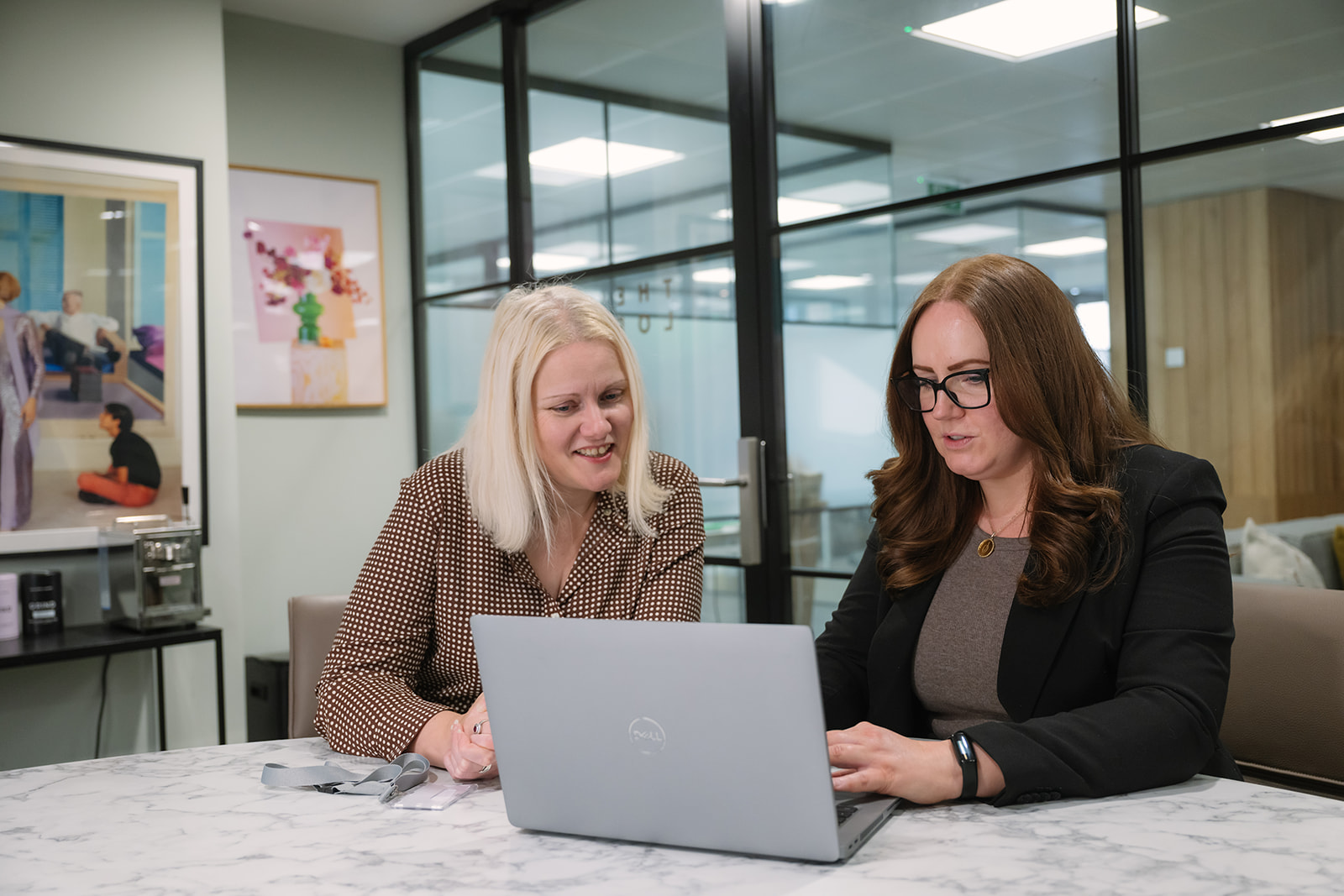Statutory sick pay (SSP) is paid to employees or workers who pay Class 1 National Insurance Contributions but can’t work because of illness.
Those who are self-employed (and pay Class 2 and 4 National Insurance Contributions) have no entitlement to Statutory Sick Pay, but may be able to claim Employment and Support Allowance (ESA). The gov.uk page gives more details of this change.
This article covers
- Qualifying conditions
- Temporary changes to SSP and fitnotes during the coronavirus pandemic 2020
- Deductions
- RIDDOR
- Holiday entitlement during sick leave and sick leave during holidays
- Fit notes
- ESA and Universal Credit support for the self-employed
Qualifying conditions
The standard rate of SSP is £116.75 per week, increasing to £118.75 from 6th April 2025. You’re entitled to SSP from your employer if you meet the following conditions:
- You must be sick for at least four days in a row (including weekends and bank holidays), which is called a ‘Period of Incapacity for Work’ (PIW). One of these days must be a Qualifying Day (QD). A qualifying day is a worker normally works, and your employer must have at least one QD in each week
- You must earn an average of £123 per week (from 5th April 2022; increasing to £125 per week from April 2025) before tax and National Insurance deductions – calculated over the eight weeks ending with the last payday before the sickness began. ‘Average’ weekly earnings include normal wages, any holiday pay, overtime, sick pay or maternity pay you’re receiving. If you haven’t had eight weeks earnings, your employer must ‘average’ the actual earnings you have had in this period
- If you’ve received benefits such as ESA, invalidity pension, or any other sickness allowances within the last 12 weeks, ineligible for SSP
- There’s no minimum period you need to have worked for your employer to qualify for SSP
- There are no age limits to receiving SSP
- You must notify your employer that you’re sick as soon as possible – and within seven days of the first day of your sickness (unless your employer has its own time-limited) and provide medical evidence. Your employer can withhold payment for SSP for the period of delay in notifying them of your sickness where there’s no good cause for the delay.
SSP isn’t paid for the first three days of your sickness (these are called ‘Waiting Days’), but after that, you’re paid SSP for the days that you normally work.
If you arrive at work and do perform some duties (even a minute), that day won’t be treated as a day of incapacity for SSP purposes. If you’re a shift worker and, for example, work a shift from 6pm on Friday to 2am on Saturday, then fall sick later that Saturday, that will count as a day of incapacity (even though you’ve worked part of your shift).
‘Periods of Incapacity for Work’ (PIW) can be linked and treated as one PIW if the gap between them is eight weeks or less (56 days). SSP is paid for a maximum of 28 weeks, and when it ends (or if you can no longer claim it), you may be able to claim Incapacity Benefit/Employment and Support Allowance from your local Job Centre; your employer needs to give you an SSP1 form which they complete and you send to your local Job Centre.
If you’re only able to provide your employer with a non-UK medical certificate for a period of sickness (as you have been abroad), HMRC can arrange translation of the certificate into English if the employer disputes your SSP entitlement. Otherwise, employers should arrange for the medical certificate to be translated.
If your employer doesn’t pay your SSP, or if you believe they’re not paying you the correct amount, you can contact your local HMRC office for help. You may also be able to make a claim for an unlawful deduction of wages through an Employment Tribunal.
Deductions
Employers are legally entitled to make deductions from SSP for salary overpayments, for example, but are advised not to do so as this could breach the implied duty of trust and confidence which exists between the employer and employee. Check out our article, "Guide to pay, wages, pay cuts, and ‘unauthorised deductions’", for more information.
Many employers may offer more generous payments to employees if they’re off sick, under their own occupational sick pay schemes (which may have different ‘reporting your sickness’ requirements).
Employers can no longer reclaim SSP costs from their employees.
RIDDOR
If you’re off sick, you should let your employer know as soon as possible. If your sickness is caused by an accident at work, your employer should follow their accident reporting requirements under RIDDOR regulations. Check out our article, "What happens if I’m injured at a client’s premises?", for more information on injuries and accidents at work.
Holiday entitlement during sick leave and sick leave during holidays
You can find out more about holiday entitlement and sick leave in our "Holiday entitlement and sick leave – some clarity?" article.
Gov.uk also provide information regarding your pay rights during your notice period, and HMRC have published a guide for employers about paying SSP.
Fit notes
If you return from sickness within seven days, you should be required to fill in a self-certificate form explaining the nature of your sickness absence.
If you’re ill for seven days or more, you need to get a certificate from your Doctor (GP or hospital doctor) explaining why you couldn’t go to work. Your employer can’t withhold SSP if you’re late in sending in a fit note, although they can withhold SSP if you’re late in notifying them that you’re sick. These certificates are known as fit notes.
On 1st July 2022, new rules for issuing fit notes were introduced - from this date, in addition to Doctors, now nurses, occupational therapists, pharmacists and physiotherapists will also be able to issue fit notes to workers (following an assessment, they cannot be issued on request).
In addition, since 6th April 2022, fit notes can now be issued digitally, they do not require an actual signature, as long as individuals have seen their Doctor (whether virtually or otherwise)
The purpose of the fit note is to encourage the gradual reintroduction of employees to work, as they recover from their illness, which the government believed would help both employees and employers.
A fit note will only have two options. GP’s will indicate that sick individuals:
- Are totally “unfit for work”
- “May be fit for some work” (with GP’s advice).
They won’t have an option to state you are fit for work.
{{cta-newsletter}}
Important information about fit notes:
- The fit note can only be issued by GP’s for a maximum period of three months in the first six months of sickness
- The system has no effect on how SSP functions or on employers obligations under the Disability Discrimination Act
- Since April 2010 the old white sick note (called Med 3) or pink sick note (called Med 5) were both replaced by one new form (Statement of Fitness for Work). The yellow (Med 10) form that is issued when an individual has been a hospital in-patient will not change and will continue to be issued
- GP’s are asked to choose ‘may be fit for work’ where they think the person may be able to return to work, even if not completely well, if they get suitable support from their employers
- GP’s will then list whether an employee would benefit from a phased return to work, altered hours or duties or workplace adaptations, but they don’t need to go into detail regarding what activities an employee can carry out
- The fit note will state whether you need to see your GP again (at the end of the duration of the fit note), before you return to normal or ‘supported’ work. If your GP doesn’t need to see you again. you’d be expected to return to work at the end of the Statement period. If your GP needs to see you before this date, and during this consultation, they feel you can return to normal work (without support, which is being called ‘functional limitations’) you won’t be issued with a new statement
- If circumstances change during the period of the fit note duration and employees feel they are ready to return to work (with or without support), they need to return to their GP for an amended fit note.
More information on what the employer's guidance notes on fit notes say:
- Employers should discuss the GP’s ‘may be fit for some work’ comments with the employee to see if the GP’s suggestions can be accommodated
- If the matter cannot be resolved with the employee, employers are asked to consider taking advice from an Occupational Health (OH) professional and/or contact the GP to discuss the comments
- If an employer can’t provide the necessary support or cannot agree with the Employee about the type of support suggested by the GP, the government have advised that the GP’s comments are advisory only and so aren’t binding on the employer. Where there is no agreement and the employee cannot return to work then the fit note will be treated as a ‘not fit for work’ note, until the situation changes.
For information about dismissals due to ill-health see our guide to how your employment can come to an end.
For information about disability and discrimination and more about reasonable adjustments, see our guide.
ESA and Universal Credit support for the self-employed
Since self-employed workers are not generally covered by Statutory Sick Pay, you may wish to consider Employment and Support Allowance (ESA). This is a welfare program that supports those whose capacity to work has been affected either by sickness or disability.
When you apply for ESA, you will need to meet certain conditions to prove that your ability to work has been compromised directly by your sickness or disability. Further details can be found here.
You may also be eligible for Universal Credit, although you will only be able to make a claim if you fall beneath the minimum income floor (MIF).
If you are an employer and need ongoing professional help with any staff/freelance issues then talk to Lesley at The HR Kiosk – a Human Resources Consultancy for small creative businesses – our fees are low to reflect the pressures on small businesses and you can hire us for as much time as you need.
Please note that the advice given on this website and by our Advisors is guidance only and cannot be taken as an authoritative or current interpretation of the law. It can also not be seen as specific advice for individual cases. Please also note that there are differences in legislation in Northern Ireland.


.svg)

.svg)



.webp)












